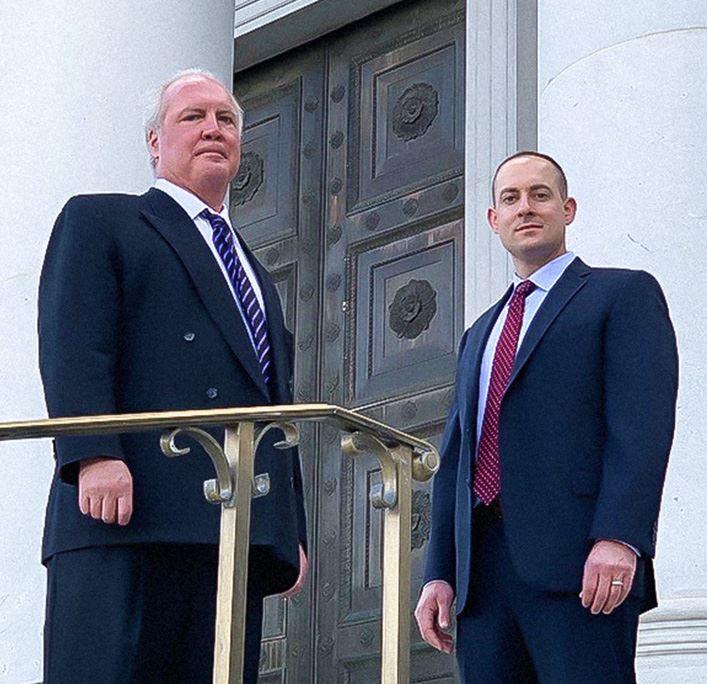
Denver DMV Hearing Attorneys
What Is Colorado's Express Consent DUI Law?
Colorado's express consent law states that by obtaining a state driver's license and operating a motor vehicle, you are automatically giving what is known as "express consent." In other words, you are giving permission to undergo a chemical test should you be pulled over for suspicion of DUI or DWAI.
You Only Have 7 Days to Save Your License After a DUI Arrest
After a DUI arrest in Denver or Colorado, you only have seven days to request a hearing with the DMV to challenge the suspension of your driver's license. This is known as an “express consent” hearing, which is separate from the criminal proceedings for your DUI or DWAI charge. Rather, it is an administrative process where a DMV hearing officer will decide whether or not to revoke or suspend your driving privileges.
If you do not request an express consent hearing within seven days of your arrest, the state will automatically suspend your license, and you will lose the chance to challenge the action. Don’t just accept these consequences; contact a Denver DMV hearing lawyer at Fife Luneau, P.C. to discuss your options. Our firm will fight to save your driving privileges, so please don't wait to give us a call.
Call (720) 408-7130 or contact us online to request your FREE consultation with our proven DMV hearing attorneys in Denver & Colorado!
How Long Will My Driver's License Be Suspended?
The DMV can apply the following penalties to your license:
- DWAI offense: 8 points on your driving record (no automatic suspension)
- First DUI offense: 9-month suspension and 12 points on your record
- Second DUI offense: 1-year suspension and 12 points on your record
- Third DUI offense: 2-year suspension and 12 points on your record
- First underage DUI offense: 3-month suspension and 4 points on your record
- Second underage DUI offense: 6-month suspension and 4 points on your record
- Third underage DUI offense: 1-year suspension and 4 points on your record
- First chemical test refusal: 1-year driver's license suspension
- Second chemical test refusal: 2-year driver's license suspension
- Third chemical test refusal: 3-year driver's license suspension
The blood alcohol content (BAC) limit is 0.05% for DWAI and 0.08% for DUI. For those under 21, the BAC limit is 0.02%. These penalties are in addition to any criminal sentencing that may be handed down. By requesting a DMV hearing in Denver, you may be able to minimize or avoid these administrative penalties.
What You Should Know About Colorado DMV Hearings
Driver’s license hearings are more informal than court proceedings. In fact, these hearings can even be conducted over the phone. However, having a DMV attorney at your hearing is still critical. It is the only way to ensure you have the best possible chance of maintaining your driving privileges.
Even if the DMV hearing is unlikely to be successful, it could still benefit your criminal case. During a DMV hearing, your attorney would have the opportunity to cross-examine the arresting officer under oath, which means they could use this testimony as part of your defense in your criminal case.
You May Have the Option for Early Reinstatement
If your license is suspended after a DUI or DWAI arrest, you may be eligible for early reinstatement if you install an ignition interlock device (IID) in your vehicle. You must have served part of your suspension, be at least 21 years old, and have satisfied all other requirements for reinstatement of your license.
Choose Fife Luneau, P.C. to Get Started on Your Defense
We take great pride in standing on the side of the accused in the Colorado justice system. We are available for our clients 24/7 and have won numerous awards for our work. Put our combined 30 years of experience to work for you at your DMV hearing and DUI trial. Take a stand for your driving privileges. You deserve a hearing, and we’ll be there for you. Call Fife Luneau, P.C./ today to get started.
Contact our DMV hearing lawyers in Denver, CO for a FREE evaluation of your case by calling (720) 408-7130.

-
 Acquitted of All Charges DUI Acquittal
Acquitted of All Charges DUI Acquittal -
Dismissed DUI, DWAI, Careless Driving
-
Dismissed DUI, DWAI
-
Dismissed Driver’s License Interlock Violation Hearing
-
 Dismissed Attempted Murder, Assault, Menacing with a Deadly Weapon, Distribution of Marijuana
Dismissed Attempted Murder, Assault, Menacing with a Deadly Weapon, Distribution of Marijuana
BECAUSE RESULTS MATTER
Recent Case Victories
Fife Luneau, P.C. is one of the most respected law firms when it comes to DUI and criminal defense cases. We have a remarkable track record up and down the Front Range, successfully handling some of the most complex cases.
- DUI Acquittal
- DUI, DWAI, Careless Driving
- DUI, DWAI
- Driver’s License Interlock Violation Hearing
- Attempted Murder, Assault, Menacing with a Deadly Weapon, Distribution of Marijuana


Have Questions?
-
How should I choose a Denver criminal defense attorney?First and foremost, your lawyer should be confident and knowledgeable in their practice. You should always feel comfortable with discussing the details of your situation and your freedom and your rights should be your counsel’s top priority. At Fife Luneau, P.C., our team has a true passion for what we do, and our experience and zealous advocacy is a testament to this. We have a proven track record for results and will always fight for your best interest.
-
How much are your legal fees?Fife Luneau, P.C. handles cases on an upfront flat-fee schedule that is determined based on how severe your charges, how complex the case, and whether you need to go to trial. We will discuss all issues with you beforehand, and once you agree to our fees, we’ll hold your money in a trust on your behalf. This way we can focus on your matter and not on money. Our firm also accepts all major credit cards.
-
After an arrest, what are my rights?Every U.S. citizen is granted certain rights by the Constitution. These include the face that you are innocent until proven guilty, and that burden is put on the prosecution. After you have been charged, you have the right to a public trial, skilled counsel of your choosing or a court-appointed lawyer, if needed, the right to remain silent to protect yourself from incrimination, the right to cross-examine the accused, the right to testify, or not, and the right to an appeal.

